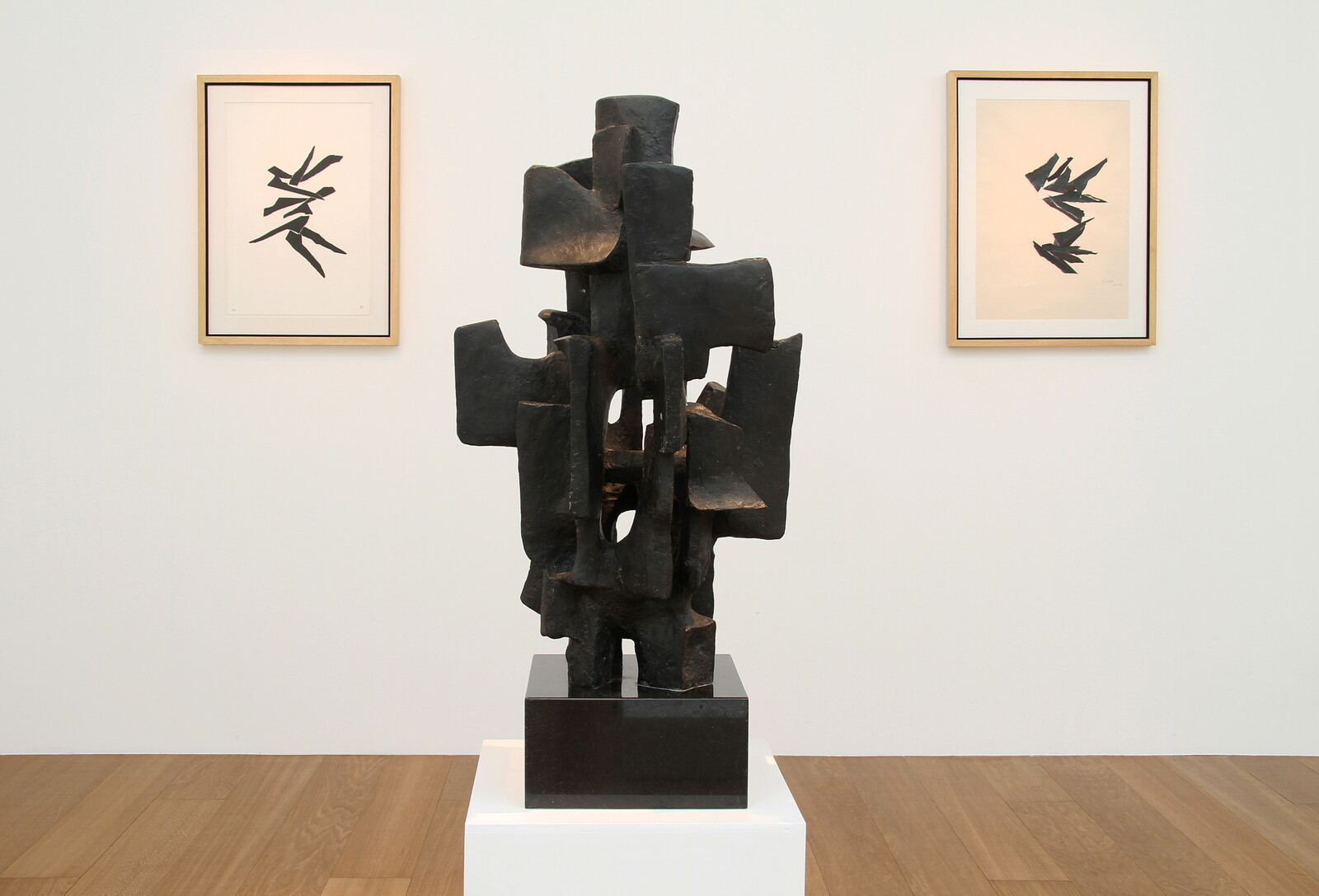Sculptress
October 14, 2016–February 17, 2017
Avda. Figueroa Alcorta 3415
Buenos Aires
Argentina
Hours: Wednesday–Monday 12–8pm
prensa@malba.org.ar
MALBA presents the first solo exhibition of artist Alicia Penalba (San Pedro, Buenos Aires, 1913–Landes, France, 1982) ever held in a museum in Argentina or anywhere in the Americas after the artist’s death. Curated by Victoria Giraudo, it includes a selection of her abstract sculptures from different series (totemic, winged, monumental, and petits works) produced from the time she moved to Paris in 1948 until her unexpected death in 1982. In the framework of the exhibition, three totemic sculptures are exhibited on the museum´s esplanade as part of a program that has featured in the last years major works by Leandro Erlich and Jeff Koons, among others.
Product of collaboration with the Alicia Penalba archive—which also contributed key information to the curatorial research—sketches, photographs, letters, articles in the press, and sound and film materials on the artist’s thinking and production process were used for a documentary produced by El Pampero Cine on the occasion of the show. The film shows the monumental works Penalba created for public spaces like the University of St. Gallen, Switzerland (1963); the Hakone Art Museum, Japan (1969); the MGIC Investment Corporation in Milwaukee, USA (1978); and the Société Roche Neuilly, France. As one of the few women to have produced monumental sculptures like those, Penalba is a major figure in the history of non-figurative Argentine art.
Penalba participated in Documenta in Kassel (1959 and 1964); was awarded the Grand Prize in Sculpture at the 1961 São Pablo Biennial; a solo exhibition of her work was held at the Museu de Arte Moderna do Rio de Janeiro in 1962; in 1968, a major exhibition of her work and the work of Wifredo Lam and Matta was held at the Musée d’Art Moderne de la Ville de Paris (where, in 1977, a retrospective of her work also took place) and, in 1978, an exhibition of her work was held at the Museo de Bellas Artes de Caracas.
With this exhibition—part of a larger project to increase the visibility of women artists from the history of Latin American art—MALBA attempts to give Penalba’s work and artistic thought the recognition they deserve. In collaboration with the Alicia Penalba archive, MALBA, in conjunction with Ediciones RM, published the first reference book on this artist. It includes a prologue written by Hans Ulrich Obrist where he recounts the discovery of the sculptures of Penalba in his student years during the 1980s, and the essay “Alicia Penalba´s Sculpture in the Expanded Field of Television” by Elisabeth Lebovici, among others.
Also on view at MALBA:
Anthropophagy and Modernity. Brazilian Art in the Fadel Collection, is an exhibition curated by Victoria Giraudo featuring a broad survey of Brazilian art through a selection from the more than 150 works in the Fadel Collection, one of the most important and most complete collections of Brazilian art. The exhibition offers a panorama of the various modern movements linked to the cultural construction of Brazil and continuing up to the beginnings of contemporary art. It includes paintings, drawings, sculptures and objects by such central artists as Anita Malfatti, Tarsila do Amaral, Candido Portinari, Emiliano Di Cavalcanti, Víctor Brecheret, Maria Martins, Lygia Clark, Geraldo de Barros, Waldemar Cordeiro, Iván Serpa, Willys de Castro, Antonio Días, Rubens Gerchman, Hélio Oiticica and Anna Maria Maiolino, among many others. On view until February 26, 2017.
Carlos Motta. Requiem is a project curated by Agustín Pérez Rubio and designed specifically for MALBA in which artist Carlos Motta (Bogotá, Colombia, 1978) investigates the tense historical relationship between religion and dissident sexualities through a series of works with alternative visions of the moral values endorsed by the doctrines of Christianity. The cornerstone of the exhibition is the three-channel video installation entitled Réquiem which, on the basis of a sexual rereading, questions the narratives of deliverance and transcendence in the death and resurrection of Christ. To that end, Motta looks to the thinking of Argentine theologian Marcella Althaus-Reid, specifically her Teología indecente (Indecent Theology). In three videos based on performative acts, the transcendent body is sexualized, queerified, politicized, and poetized in pursuit of new fictions that take sexual difference into account. The exhibition will be on view until February 19, 2017.


